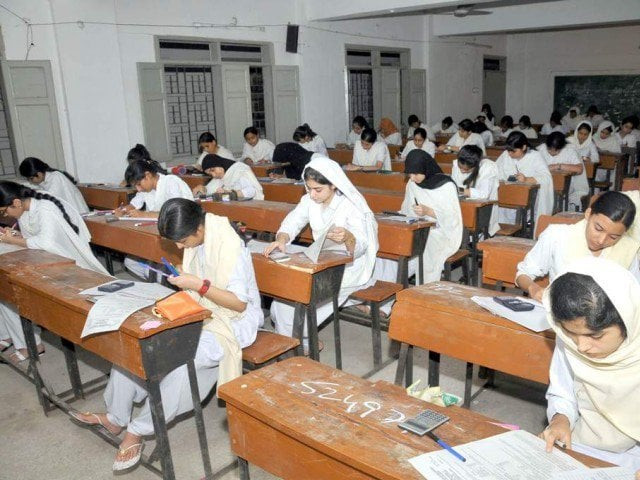Say no to cheating!
Malpractice culture in examinations endangers the credibility of the overall education system and public trust

An examination is a critical component of education and lies at the heart of any academic exercise. In an examination, the learning outcome of students, based on a given curriculum, is tested or evaluated. This evaluation process can take place in multiple forms: weekly, monthly, quarterly, or annually. Experts agree that performance in the examination may not be the true reflection of a student’s ability, but it is the closest indicator of the extent of his achievement for a given skill. Hence, the examination is a tool within the education system to determine the ability level of a student. It also serves to establish meritocracy; measure competence or achievement in a given field; and help predict future success, placement, or selection to higher-level education and certification. Therefore, a credible examination plays a significant role in an education system.
Malpractice in examination refers to an act of wrongdoing carried out by a student or a group of students to gain an unfair advantage to obtain a score beyond their capability. Malpractice in examination defeats the basis of scoring of students. Moreover, it gives a false impression of the amount of knowledge, understanding, and skills possessed by a student. Malpractice culture in examinations endangers the credibility of the overall education system and public trust. Above all, such practices breed dishonesty, mediocracy, self-deception and fraudulent behaviours in society.
There are multiple forms of examination malpractices, commonly called cheating. It can occur before, during and after an examination. It includes bringing and using external materials in examination hall, sticking out one’s neck to see another student’s answer-sheet, swapping answer booklets, and exposing answer-sheets to other students. Jotting down information on materials such as rulers, erasers, clothing, or body parts is also tantamount to cheating. Impersonation is also among unfair means running rampant. And now with an unchecked use of high-tech gadgets in examination hall to access social media platforms through the internet, fairness and transparency of the examination system is under growing threat.
It takes two to tango. Collusion of examination officials with students — resulting in the leaking of examination paper beforetime — is a practice pretty common and highlights weakness and corruption within the system. Invigilators — dishonest or lenient — are also responsible for cheating during examination.
In many cases, students’ parents or other family members also reach out to corrupt officials to exploit loopholes for their children. It is believed that the race for obtaining high grades to ensure admission to renowned higher education institutions, family pressure and fear of failure are some of the factors that compel many a student to resort to cheating.
In Pakistan, about 4 million students of secondary and higher secondary level appear in high-stakes exams annually. As many as 30 Boards of Intermediate and Secondary Education are responsible for organising these exams.
Every year, media reports expose rampant use of unfair means during exams. Nearly every question paper is available on WhatsApp before the start of the exam. Use of cellphone in most of examination halls goes unchecked and students connect with outsiders for unfair and illegal help. The students are neither ashamed nor scared of indulging in unfair means to pass the exams. Officials of the various examination boards as well as the staff at examination centres, which also include teachers, are equally responsible for promoting the cheating culture.
The examination system has thus lost credibility. The governments do condemn the malpractice and issue warnings, but seldom take any action that could serve as a deterrent. Shockingly, members of the civil society as well as educationists too remain silent.
It is pertinent here to mention the Aga Khan University Examination Board (AKU-EB) which has a reputation worth emulating. The AKU-EB continues to invest in strengthening its system, training of invigilators, CCTV monitoring of examination centres, and quality assurance. The system promotes meritocracy and can measure the true ability of students. Every year, AKU-EB students outperform those from public sector examination boards in entrance tests for many universities — which is a sign of the board’s efficiency, dedication and adherence to the principles of fairness.
Published in The Express Tribune, September 9th, 2021.
Like Opinion & Editorial on Facebook, follow @ETOpEd on Twitter to receive all updates on all our daily pieces.

















COMMENTS (4)
Comments are moderated and generally will be posted if they are on-topic and not abusive.
For more information, please see our Comments FAQ